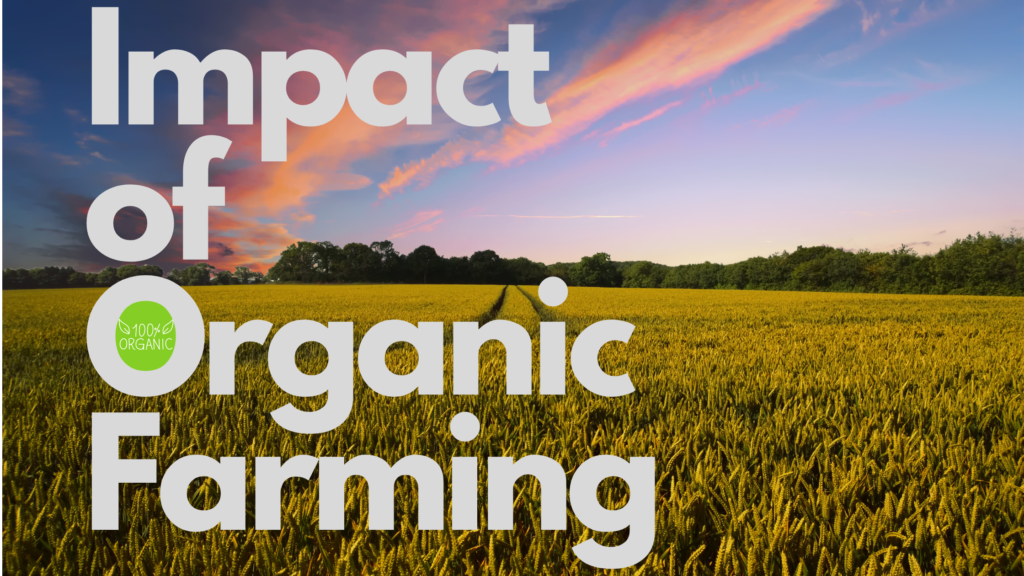
Growing Green – A Step-by-Step Guide to Starting Your Organic Farm
How to start an organic farm
Cultivating Your Dream: The Allure of Organic Farming
Organic farming for beginners is gaining traction in South India, reflecting a growing interest in sustainable agriculture. Exploring how to start an organic farm unveils a rewarding journey. Beyond yielding fresh produce, the environmental and health benefits are compelling reasons to embark on this sustainable path.
When you start an organic farm, you contribute to soil health, reduce water pollution, and promote biodiversity. Choosing organic produce not only supports local farmers but also ensures your food is free from harmful chemicals. The shift towards organic farming benefits extends to consumers enjoying nutrient-dense and flavourful produce, fostering a healthier lifestyle.
As the appeal of organic farming continues to blossom, venturing into this realm becomes an opportunity to cultivate not just crops but a connection with the land. The journey of starting an organic farm intertwines with promoting environmental sustainability and personal well-being. Embrace the importance of organic farming, and sow the seeds for a healthier and more eco-conscious future.
Planning Your Patch of Paradise: Finding the Perfect Land
When you decide to start an organic farm, selecting the right land is paramount. Consider the region’s climate and soil conditions to ensure optimal yields. Beginners in organic farming should focus on lands with good sunlight, well-draining soil, and proximity to water sources.
To know how to start an organic farm, consult local agricultural authorities or online resources for available lands. South India’s diverse agro-climatic zones offer various options. Ensure the land meets your crop requirements and aligns with organic farming principles for a successful venture.
Explore areas with a rich history of agriculture, embracing the knowledge embedded in the land. By choosing the right plot, you lay the foundation for a thriving organic farm, fostering sustainability and contributing to the broader canvas of South India’s agricultural heritage.

From Seed to Seedling: Preparing Your Soil for Success
Ensuring soil health is paramount when you start an organic farm. Unlike conventional farming, we avoid harsh chemicals and nurture the soil naturally. This means enriching it with organic matter to create a thriving ecosystem for your plants.
Here’s where traditional South Indian techniques like composting and vermicomposting come in handy! Composting involves turning kitchen scraps and yard waste into nutrient-rich compost, while vermicomposting uses worms to break down organic matter even faster. These methods not only provide essential nutrients for your crops but also help retain moisture and promote beneficial soil microbes.
By adopting these natural approaches, you’re not just nourishing your plants, you’re creating a healthy and sustainable environment for your organic farm to thrive. Now, let’s explore the exciting world of choosing the right crops for your region!
Sowing the Seeds of Sustainability: Choosing Organic Crops
Selecting organic crops wisely when you start an organic farm ensures a thriving venture. Tailor your choices to the region’s climate, accounting for water requirements and assessing local market demand. Organic farming for beginners involves aligning your crop selection with these factors.
To learn how to start an organic farm, seek guidance from local agricultural colleges or experienced farmers. They can offer valuable insights into suitable crops, planting techniques, and local market trends. In South India’s agricultural mixture, connecting with such expertise paves the way for a successful organic farming journey.
Whether it’s the resilient millets, nutrient-rich leafy greens, or staple crops like rice, choosing organic crops aligned with the region’s characteristics elevates your venture. By incorporating local knowledge and market demand into your crop selection, you set the stage for a sustainable and prosperous organic farming venture.
Nurturing Your Farm: Organic Pest Management and Care
When you start an organic farm, embracing natural methods for organic farming is crucial. Nurturing your organic farm doesn’t just involve only planting seeds; it also means protecting your crops from unwanted pests and diseases naturally. Unlike conventional farming, we avoid harsh chemicals that can harm the environment and potentially leave residues on your produce.
In the realm of organic farming for beginners, companion planting involves strategically placing compatible crops to deter pests naturally. For example, marigolds can deter harmful insects from your vegetables, while certain herbs can attract beneficial insects that control pests naturally. Additionally, traditional practices like using neem oil, a natural insecticide readily available in South India, can be effective against various pests without harming the environment.
By adopting these natural approaches, you’re not only protecting your crops, but also contributing to a healthy and sustainable organic farm. Remember, the journey of starting an organic farm is a continuous learning process. Be open to exploring new techniques and continue to nurture your farm with care and dedication!
Reaping the Rewards: Harvesting, Marketing, and Growing Your Future
When you start an organic farm, responsible harvesting practices are paramount. Understand the ideal time for harvest, ensuring peak freshness and nutritional content. In the context of how to start an organic farm, connecting with local markets is key.
Now, it’s time to share your bounty! South India offers several exciting options for marketing your organic produce. Consider participating in local farmers’ markets, where consumers appreciate fresh, locally grown food. Joining a Community Supported Agriculture (CSA) program allows you to connect directly with families who pay in advance for a seasonal share of your harvest.
Additionally, you can explore direct sales opportunities by approaching restaurants and shops that prioritize organic ingredients. Remember, starting an organic farm is a journey of passion and dedication. By connecting with your community and offering high-quality, sustainable produce, you’re contributing to a healthier and more vibrant South India.
To learn more about organic farming and find resources near you, visit your nearest Uyir Organic Farmers Market or check out their website at www.uyironline.in or www.uyirorganic.farm